Classic keys on a budget: Six cheap MiniMoogs!
Get the fabled sound of a Moog synth for less with four recent software recreations and two super cheap hardware clones

Want all the hottest music and gear news, reviews, deals, features and more, direct to your inbox? Sign up here.
You are now subscribed
Your newsletter sign-up was successful
KEYS WEEK 2023: If there is one keyboard synth that is ubiquitous in all senses, it has to be the Moog MiniMoog. It's such a legend that it's no surprise to discover that it is one of the most reimagined synths to appear in software. There are also several hardware modules that attempt to recreate that Moog magic, and for much less money than an original hardware synth will cost you today (anything up to five figures in whatever currency you use!).
This feature looks at the best and most recent Moog recreations – in both hardware and software – so you can experience the sound of a legend, without forking out the price of a (small) house. We have everything from synth plugins that faithfully explore every vintage component of the original to hardware re-imaginings that take the Moog blueprint and run with it to new territories.
Time to explore some of the latest and cheapest versions of this most classic of synths…
Cherry Audio Miniverse
Miniverse is a VST, AU and AAX plugin that boasts the classic and clear signal path of the original MiniMoog in a retro GUI which is pretty exacting to an original. There is plenty of attention to detail, from the use of the same font to the inclusion of all the original features.
The sound is top notch too. The oscillator behaviour and character is identical, as are the waveforms, which include the ever-popular shark-tooth wave. You can also switch the VCOs to Lo-Frequency mode, should you wish to redeploy a VCO to LFO duties, as you would on a hardware original. The filter modelling is exemplary, as is the envelope behaviour, which is no mean feet, due to their classic stylisation and shape.
At any price, this would be regarded as a future classic, but at just $59, this is a no-holds-barred unashamed bargain recreation of a MiniMoog, and one that sounds sensational.
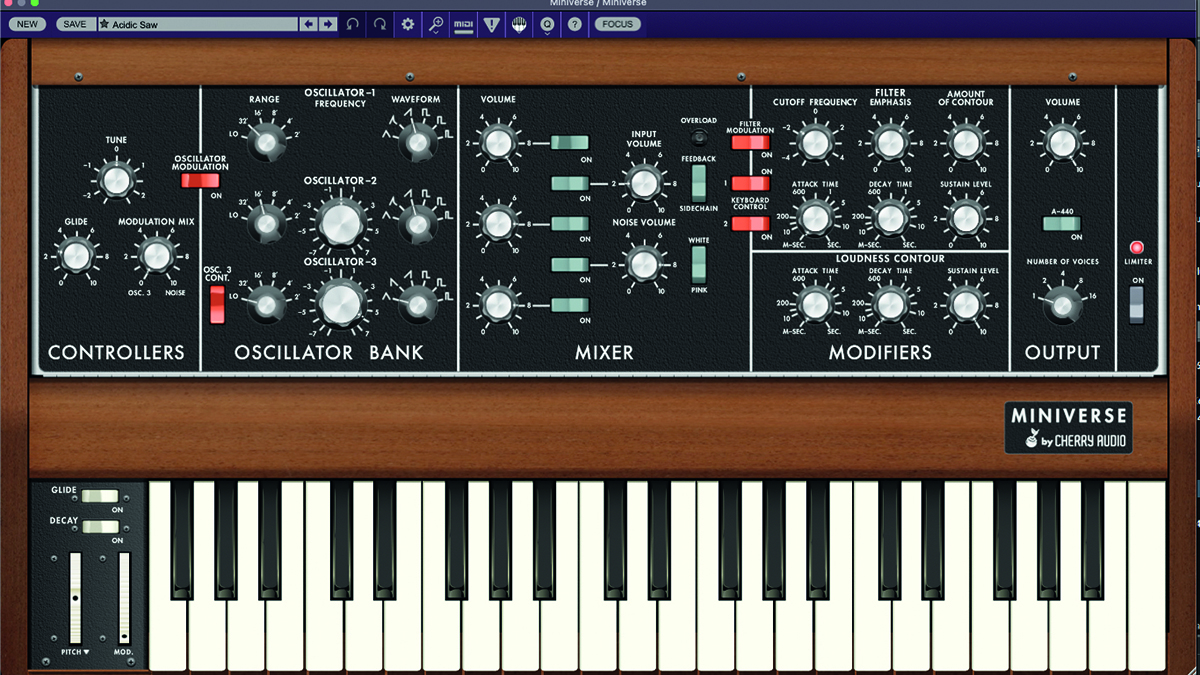
GForce Minimonsta 2
GForce's Minimonsta 2 is an update to its award-winning Minimonsta VST/AU/AAX plugin and a cracking one at that. Its architecture is reassuringly familiar to all who’ve previously used a MiniMoog, with three oscillators providing the initial heavy lifting. There are six waveforms, with a new Pulse Width control.
GForce makes the point that the original Moog 24dB ladder filter is a thing of pure sonic joy, but it suffers from the ubiquitous issue of losing bottom-end, when the resonance is increased. Here, then, you can also switch to a more modern iteration, which rebalances this issue.
Want all the hottest music and gear news, reviews, deals, features and more, direct to your inbox? Sign up here.
Sonically, Minimonsta is indistinguishable from the real McCoy, but has the ability to go significantly further in editing. There's also a Vintage knob, which can be increased to induce vintage-style characteristics when tuning, plus a back-end Matrix Reverb, with five different reverb styles which sound exceptionally musical.
Minmonsta 2 is a truly magnificent synth, with all of the character of the original Mini, but with plenty of capacity for modern control. It’s also polyphonic, to the tune of 16 voices and has a superb collection of 800 patches will certainly keep you inspired.
It's £99.99 and available from GForce Software.
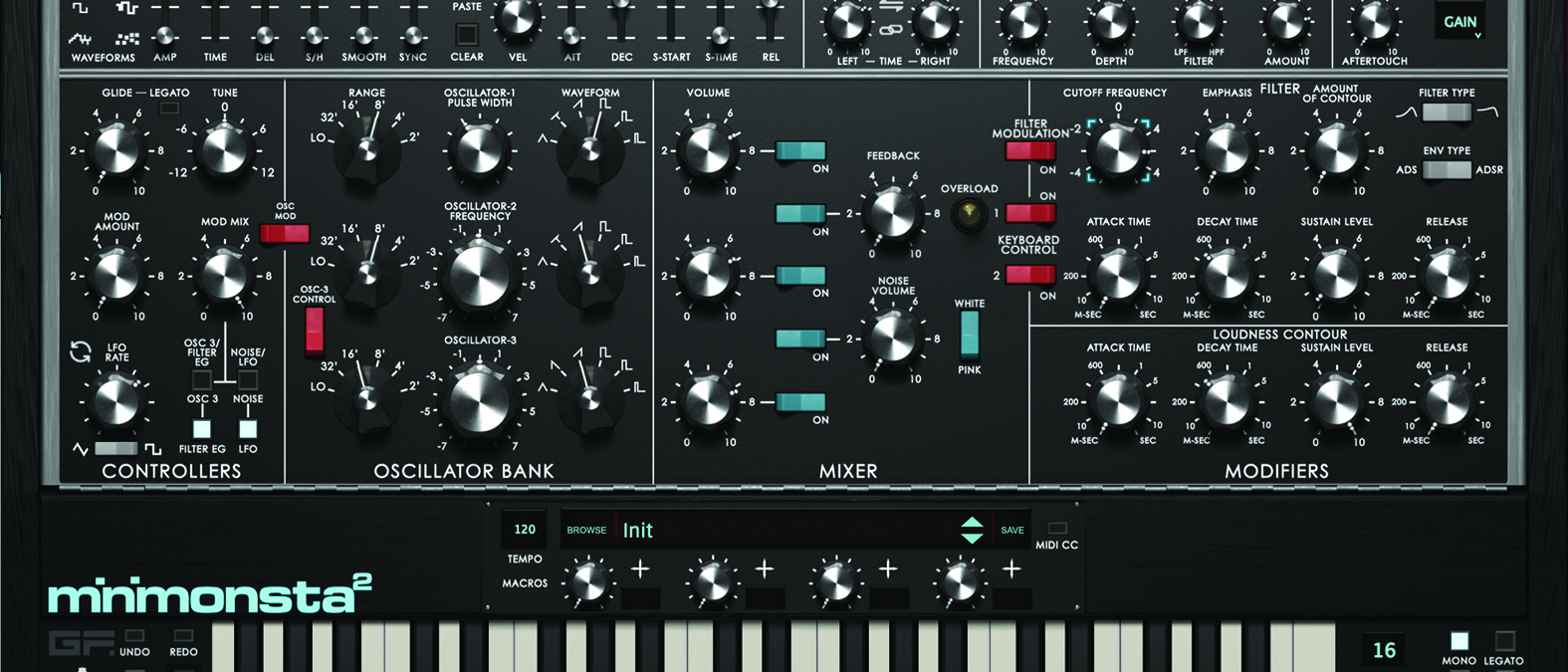
Softube Model 72
Softube's 'Model' range includes software emulations of classic synths that were released in a year denoted by the number in each plugin's name. So with Model 72, we get a Minmoog from 1972 (although what Softube does when it wants to model two classics from the same year is beyond us).
Model 72 is described as “a vintage synth time machine” and is based on a Mini in pristine condition, with each component modelled to the smallest detail, quirks and non-linearities included. There are extras too: doubling, stereo spread and an expanded control set which all add up to a synth that goes further than just being a great-sounding emulation.
It's one of the more expensive Moog options, but the €159 asking price also gets you Model 72 as an effect plugin, a module for Softube’s Amp Room, and seven separate modules that can be used in the company’s Modular synth package, so it's one of the most flexible too.
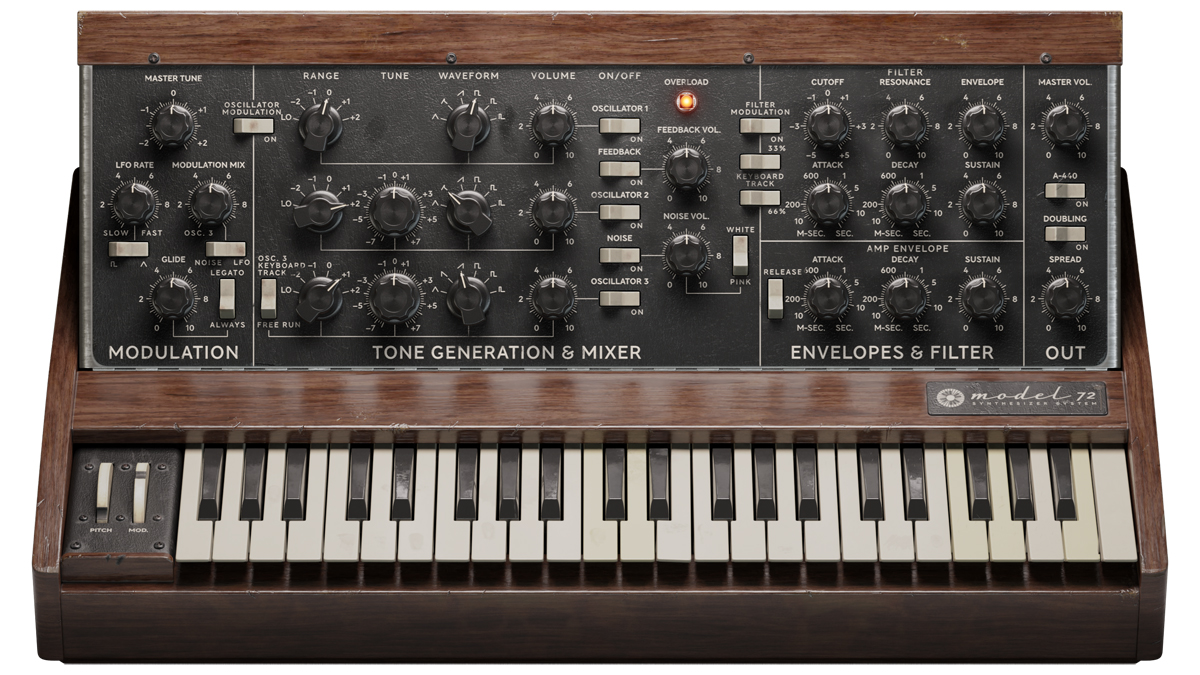
Universal Audio Moog MiniMoog
Universal Audio specialises in recreating fantastic legendary studio outboard gear in software – we all know that – but has more recently started dabbling in vintage instruments.
Moog MiniMoog is as component level ready as any UA plugin, a meticulous recreation of the vintage hardware that UA describes as "the holy grail of analog synths". (And while we agree with the sentiment, as our roundup shows, there are quite a few of these particular 'holy grails' about!)
As one of the most expensive Moog emulations (normally £199 but often discounted) Moog MiniMoog is also one of the most faithful, with all of the growl and low end clout of the original, and as mix cutting as that sound gets. We particularly like the emulation of the original's 'feedback' effect (where you can loop the MiniMoog's output to the input) and add in some extra and sometimes random distortion.
Finally, like many current UA plugins, Moog MiniMoog is native so no UA hardware is now required to run it.
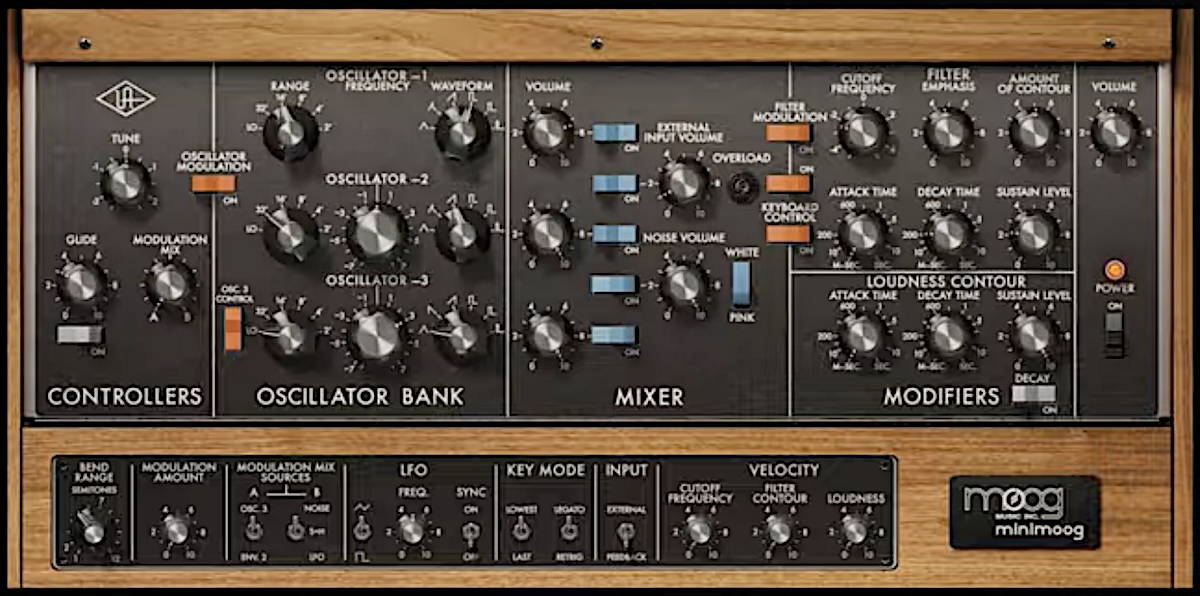
Behringer Model D
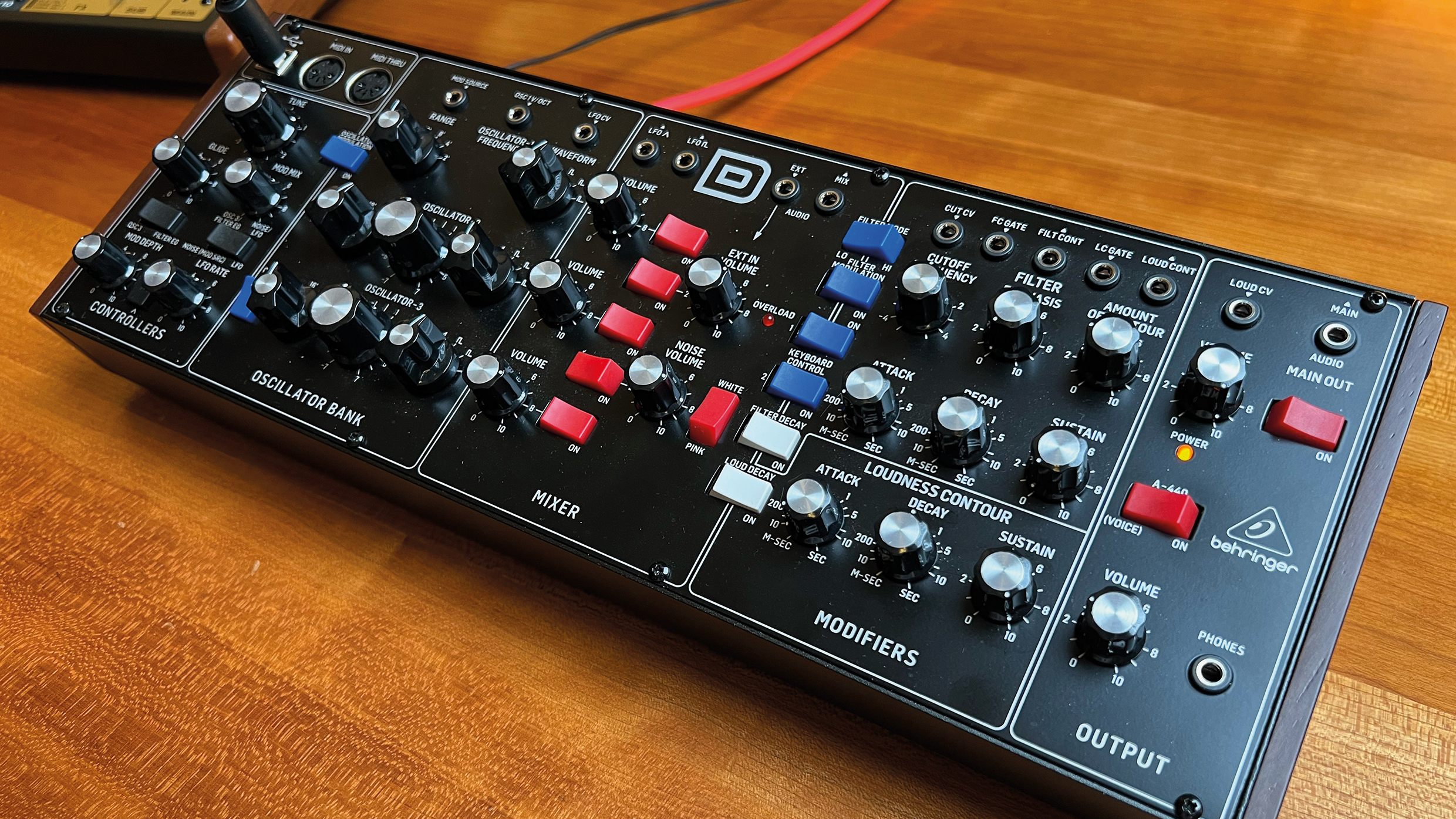
From several software recreations of the MiniMoog to a hardware clone that costs barely more than any of them. Behringer, of course, is currently on a mission to recreate many a vintage synth, but Model D was its first, and a faithful version of the MiniMoog.
Three oscillators, each with a choice of five waveforms, feed into a mixer, which then goes into a 24dB ladder filter that can be set to either high or low pass modes – the original Model D was only low-pass, so this is a nice modern enhancement. The filter has that lovely squelch you’d expect from anything with a 24dB ladder design and the resonance allows the filter to self-oscillate beautifully on the Model D.
The authenticity also runs to Model D not having any preset storage – unlike all the software versions here – but we kinda like that.
Now that the Model D has been out for a few years and it’s been put through its paces by many a producer, we can comfortably say that it really does nail that vintage sound and has found a permanent place in our workflow. Even without the ability to save patches, Behringer’s first synth clone has proven to be a hit. Model D costs $284/$299 and you can get more info from Behringer.
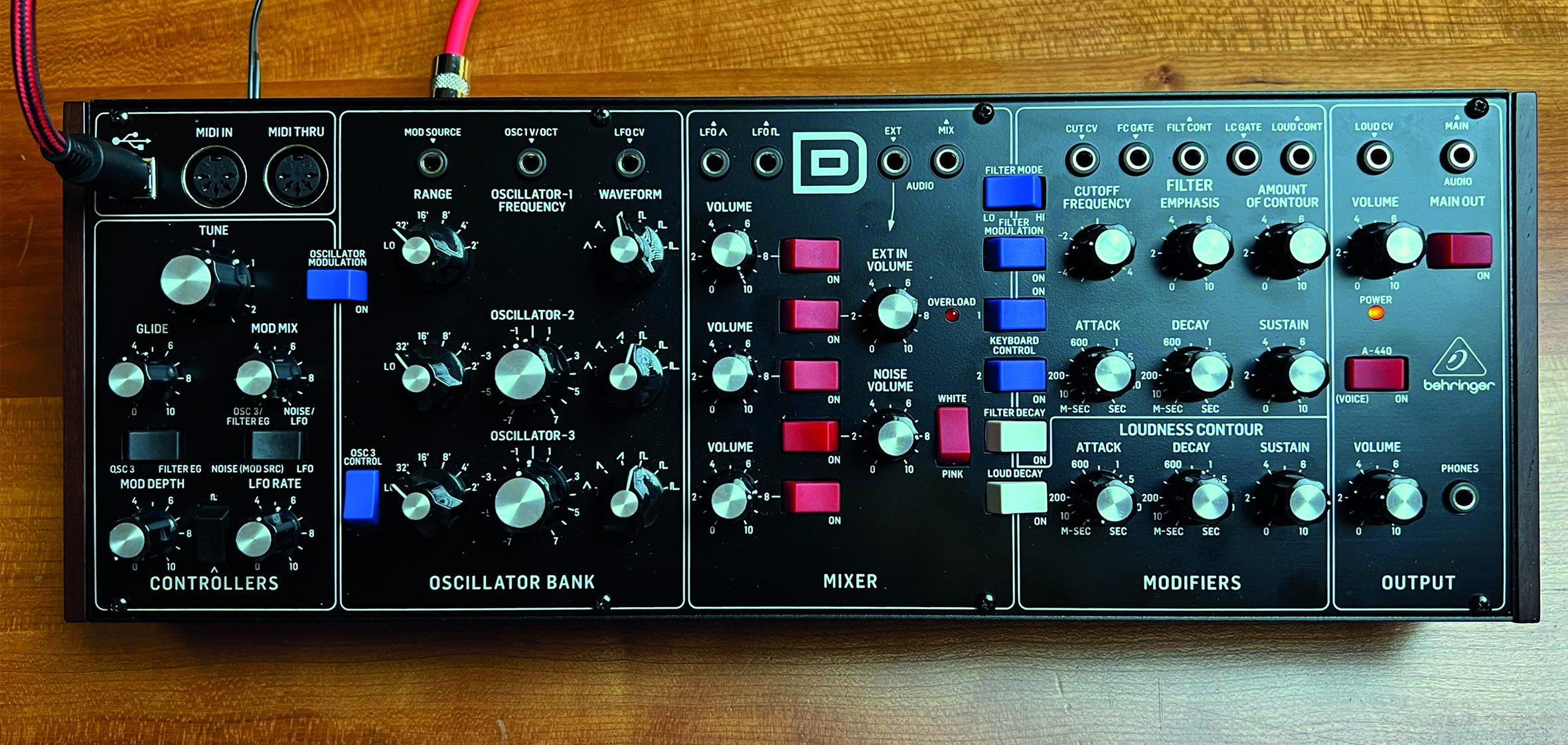
Studio Electronics/Roland SE-02
Roland and Studio Electronics' SE-02 is not a direct MiniMoog clone, but certainly close enough specs wise to include it in this roundup. It has three very stable and nicely fat/precise-sounding oscillators. Each one has six MiniMoog-style waveforms and VCO2 and 3 can be detuned against VCO1 to add richness and beating/detuning.
The filter is also similar to the original MiniMoog, as the resonance robs a decent amount of low-end at higher levels, but the flipside is you can use the resonance as a pseudo HPF. You can also play the filter during self-oscillation and it’s great for making quality kicks, hats and effect sounds.
Considering there’s also a nicely-featured sequencer onboard, the SE-02 is a very impressive piece of kit. Sonically, it’s high-quality and can do everything from warm and smooth to harsh and aggressive.
SE-02 is a great-sounding, portable and versatile monosynth for the studio and stage. It may be small but it packs a huge punch for a modest outlay.
SE-02 costs around £441 and you can get more info from Roland.
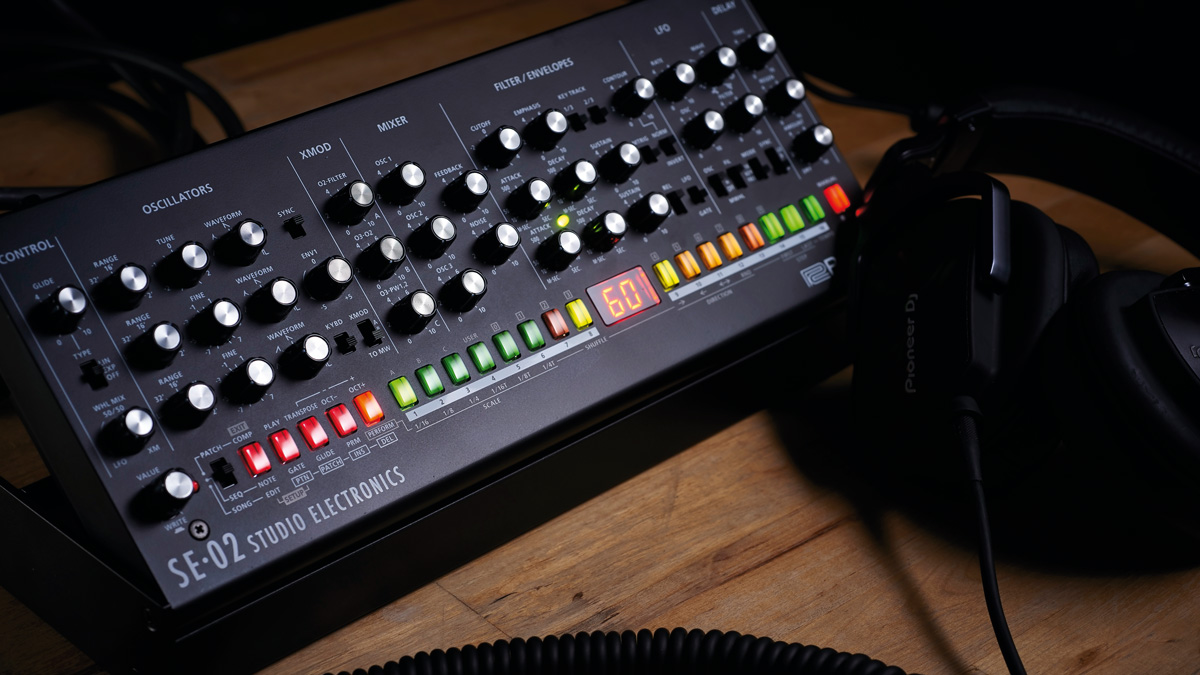
Looking for more great keyboard gear and technique? Get all our reviews, news, features, tutorials, tips and more at our Keys Week 2023 hub page.


Andy has been writing about music production and technology for 30 years having started out on Music Technology magazine back in 1992. He has edited the magazines Future Music, Keyboard Review, MusicTech and Computer Music, which he helped launch back in 1998. He owns way too many synthesizers.
